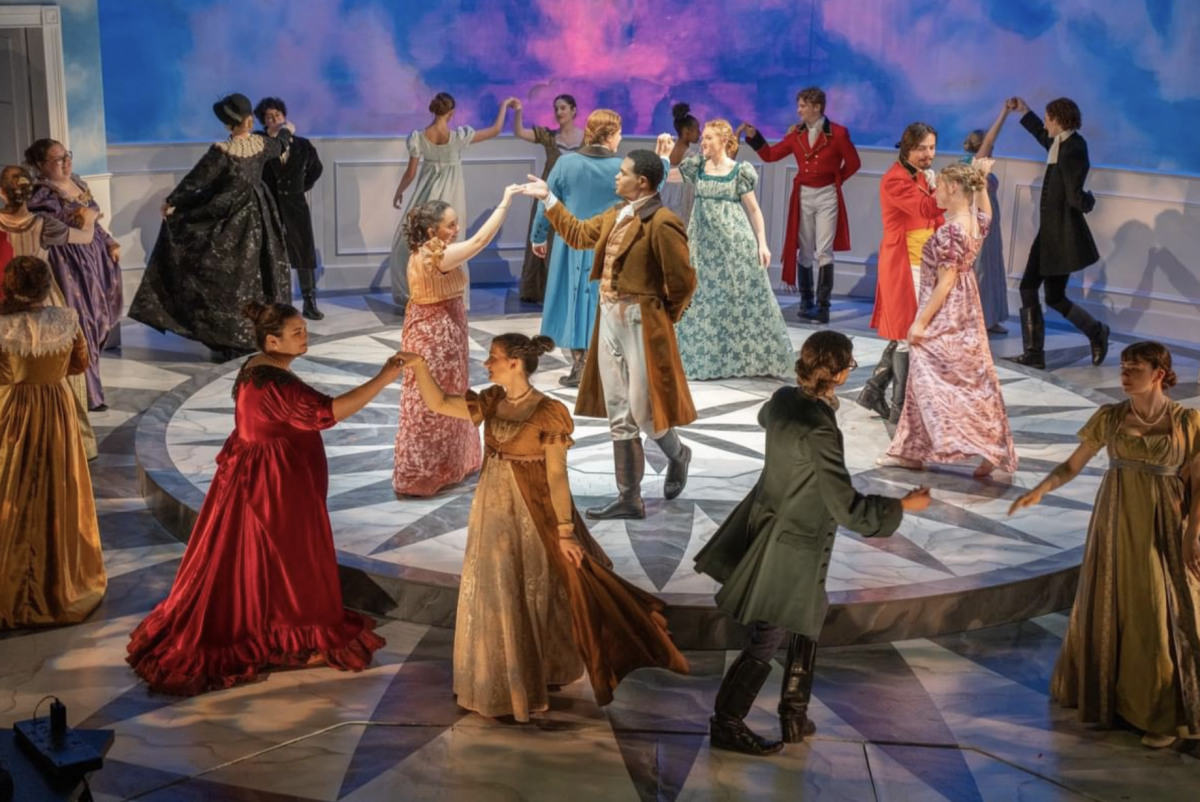In his 1983 memoir, venerable Hollywood screenwriter William Goldman ("Butch Cassidy and the Sundance Kid," "All the President's Men,") wrote that when it comes to the creative process and predicting how a movie is going to play with audiences, "nobody knows anything." I don't think it's an overstatement to say that over the past 24 years, this pithy piece of advice has taken its place among the 25 Most Influential Quotations ever uttered by an American, somewhere between Nathan Hale's "I only regret that I have but one life to lose for my country" and Springsteen's "Just wrap your legs around these velvet rims and strap your hands across my engines."
Goldman's sentiment is as true today as it was when he first wrote it nearly a quarter of a century ago. Of course, this has not stopped each successive generation of studio executives from thinking that if they could just get the right marketing campaign, test screening numbers or script doctor, they could control how an audience reacts to a picture.
Goldman's entire point is that movies are like organic entities — once they are completed and you release them, they take on lives of their own. Some movies have what it takes to evolve with the times and affect people and others don't. Some bloom and some die.
We would all be wise to remember Bill Goldman's words over the next week, as we continue our own metaphorical Bataan Death March toward Feb. 25, when a group of beautiful people will gather at the Kodak Theatre and make a four-hour show out of giving out five or so awards to beautiful people you may have heard of and dozens of awards to scruffy Europeans with a questionable command of the English language. It's time for the Oscars.
I do not consider myself one of those people who irrationally hates the Oscars for no good reason. I'm never going to take a shot at an event that enables people to dress up and drink too much. But the thing you need to understand about the Oscars is that they are like everything else in Hollywood: nobody knows anything.
I'm not talking about the big question of this week, which is "Who is going to win?" In the past, I've written at length over the worthlessness of the so-called "Oscar Prognosticators" who have popped up online over the last five or so years. It's not that I think these people are cheapening the process by turning it into a horse race. As a naturally competitive person, I like to read about movies jostling for position, but I think such attention is counterproductive because they make people zero their attention in on a random collection of movies not necessarily because they are any good, but because their pedigree has been deemed award-worthy (see "Dreamgirls," "Blood Diamond") and ignoring anything outside the box ("Children of Men").
We need to remember Goldman's words most of all when the winners are actually announced. Because aside from the immediate impact of seeing a spike in DVD sales, or getting the star a five million dollar advance for his next picture, an Academy Award does nothing to change a movie. They all still have to sink or swim on their own merits.
It's a pretty well-documented fact that Oscars (and Oscar nominations) are not always a direct result of merit, but rather come from a simple collision of elements for a particular year. Luck plays a much bigger role than we all would like to admit in everything in life, and that includes our award nominations.
The only way to really understand a year in movies would be to wait at least five years before any sort of meaningful evaluation. Wait to see which movies have held up in our minds, which movies the public has embraced, and which ones it has discarded. In short, we need the Retroactive Academy Awards.
For the 1st Annual Retroactive Academy Awards, let's go back five years and look at the movies of 2001 (remember, we're honoring 2006's movies on Sunday). To start with, let's go back and list who won in all of the major categories in 2001, followed by my impressions of all of the winners, five years out.
Best Picture: "A Beautiful Mind" — My reaction: great performance by Crowe, but that's about it. Typically clumsy directing by Ron Howard, a misguided supporting performance by Jennifer Connelly. Also, it was the movie that introduced Paul Bettany to the USA, so extra demerits right there. Just a blah movie.
Best Actor: Denzel Washington, "Training Day" — My reaction: They got this one right. One of the best performances of the past 10 years.
Best Actress: Halle Berry, "Monster's Ball" — My reaction: How often do you think about this performance? Exactly. It was a grueling role, but it didn't redefine acting.
Best Supporting Actor: Jim Broadbent, "Iris" –My reaction: I've never seen "Iris" and neither have you. I do remember, however, that the only reason he was given this award was because Ian McKellan was pulling a Marty Scorsese and really hustling hard for the award, so the Academy stuck it to him and gave the statue to the other affable British guy.
Best Supporting Actress: Jennifer Connelly, "A Beautiful Mind" — My reaction: She was out of her depth. Also, the win gave rise to this myth that Jennifer Connelly is actually a good actress, an urban legend that is only now dying down, five years later.
Best Director: Ron Howard, "A Beautiful Mind" — My reaction: [stunned silence].
Now, after some internal review, I've decided on the winners of the 1st Annual Retroactive Academy Awards. My criteria was simple: movies and performances that have held up and that you actively seek out again and again.
Best Picture: "Memento" — My reaction: Revolutionary, brilliant and fun. Gave us Christopher Nolan and a resurgent Guy Pearce. Everybody loves this movie. Other contenders: "The Royal Tenenbaums," "Training Day," "Ali," "Vanilla Sky," "Made," "Amelie," "The Tailor of Panama," "Joy Ride," "The Last Castle," "Panic."
Best Actor: Denzel Washington, "Training Day" — My reaction: You can't go wrong with this one. Other Contenders: Gene Hackman, "The Royal Tenenbaums"; Vince Vaughn, "Made"; Ben Kingsley, "Sexy Beast"; Ben Stiller, "Zoolander."
Best Actress: Cameron Diaz, "Vanilla Sky" — My reaction: I've written more about "Vanilla Sky" than anybody ever should, but let me say that Diaz's performance is the most affecting in a movie filled with haunting, fleeting glances at love and opportunity lost. Other Contenders: Penelope Cruz, "Vanilla Sky"; Audrey Tatou, "Amelie"; Naomi Watts, "Mulholland Drive."
Best Supporting Actor: Ethan Hawke, "Training Day" — My reaction: Hawke was nominated in 2001, and I've always been amazed what a selfless performance he gives, yet somehow manages to maintain his character's humanity. He gives the movie an emotional center. Other contenders: Jon Voight, "Ali"; Geoffrey Rush, "The Tailor of Panama"; Tom Wilkinson, "In The Bedroom"; Jamie Foxx "Ali."
Best Supporting Actress: Laura Elena Harring, "Mulholland Drive" — My reaction: Like Diaz in "Vanilla Sky," she was the strangest part of a very strange movie. Yet five years later, I remain convinced that if you can unravel her performance, you can understand Lynch's movie. Other Contenders: Marissa Tomei, "In The Bedroom"; Carla Gugino, "The Center of the World"; Thora Birch, "Ghost World"; Kirsten Dunst "crazy/beautiful."
Best Director: Christopher Nolan, "Memento" — My reaction: Best director should always go to the director of the Best Picture. And since I have "Memento" as Best Picture, Nolan gets the statue. Other Contenders: Cameron Crowe, "Vanilla Sky"; Wes Anderson, "The Royal Tenenbaums"; Michael Mann, "Ali"; Antoine Fuqua, "Training Day."
Ray Gustini is a sophomore majoring in English and journalism. Who would be the big winners in your Retroactive Oscars? Let Ray know at [email protected].







